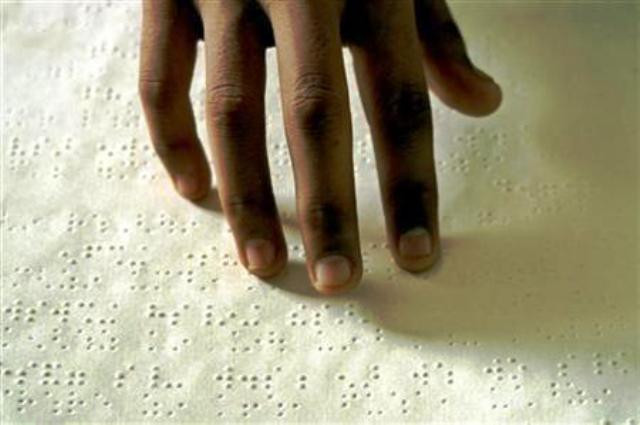Accessibility becomes a major hurdle for differently-abled people
There have been several protests of differently-abled people complaining about jobs despite an increase in quota.

PHOTO: REUTERS/FILE
The Pakistan Bureau of Statistics (PBS) revealed that around 1.82 million differently-abled people live in Punjab. The provincial government claims to have increased job quota for the differently-abled people to 3% from the previous 2%. In a statement on the International Day of Persons with Disabilities, Punjab Chief Minister Shehbaz Sharif said the government was working on a comprehensive programme for the welfare of special persons.
Measures for betterment: 235 special people recruited on daily wages
“Jobs quota for differently-abled persons has been increased from two to three percent and 4,848 jobs have been created. In total 1,550 government jobs have been given to visually impaired persons and recruitment process from scale 5 to 15 for differently-abled persons was under process,” he said.
“Additionally, differently-abled persons have been given a 10-year relaxation in the upper age limit.”
However, on the contrary to the claims of the government, the provincial capital – Lahore, has witnessed several protests of differently-abled people complaining about jobs despite an increase in quota. On October 9, visually impaired protesters from all over the province staged a protest demonstration in front of the Lahore Press Club demanding regularisation of their jobs and payment of salaries. Just two days later, on October 11, another protest took place on Ferozepur Road, suspending Metro Bus service and other vehicular traffic. Such protests have been taking place in the provincial capital for around three years, yet the problem remains unresolved.
Federal Commerce and Textile Minister Pervaiz Malik, who also runs the Lahore Businessmen Association for Rehabilitation of the Disabled (LABARD), a non-profit organisation that aims to facilitate the disabled to earn a livelihood, believed that the problem lied with the implementation of laws.
“We have laws in place that provide differently-abled persons an opportunity to earn their livelihood. However, the lack of implementation is the reason why people are deprived of their rights. Red tapism in public organisations is the major hurdle for implementation of these laws.”
Schools for children with special needs
Another major problem for differently-abled persons is the lack of equal opportunities for education. Speakers at a walk held by Ghazali Education Trust to commemorate the day in Lahore, said as many as 95% children with special needs were out of school.
Talking to The Express Tribune, Punjab Special Education Department Director Fazil Cheema said the provincial government had 273 government institutions in Punjab, which were providing education to 30,800 children with disabilities.
“We have launched an inclusive education programme in 9 districts of the province. A pilot project was launched in Muzaffargarh and Bahawalpur and now it had been started in Multan, Vehari, Lahore, Attock, Jhelum, Chakwal and Rawalpindi,” he said.
Published in The Express Tribune, December 4th, 2017.


















COMMENTS
Comments are moderated and generally will be posted if they are on-topic and not abusive.
For more information, please see our Comments FAQ